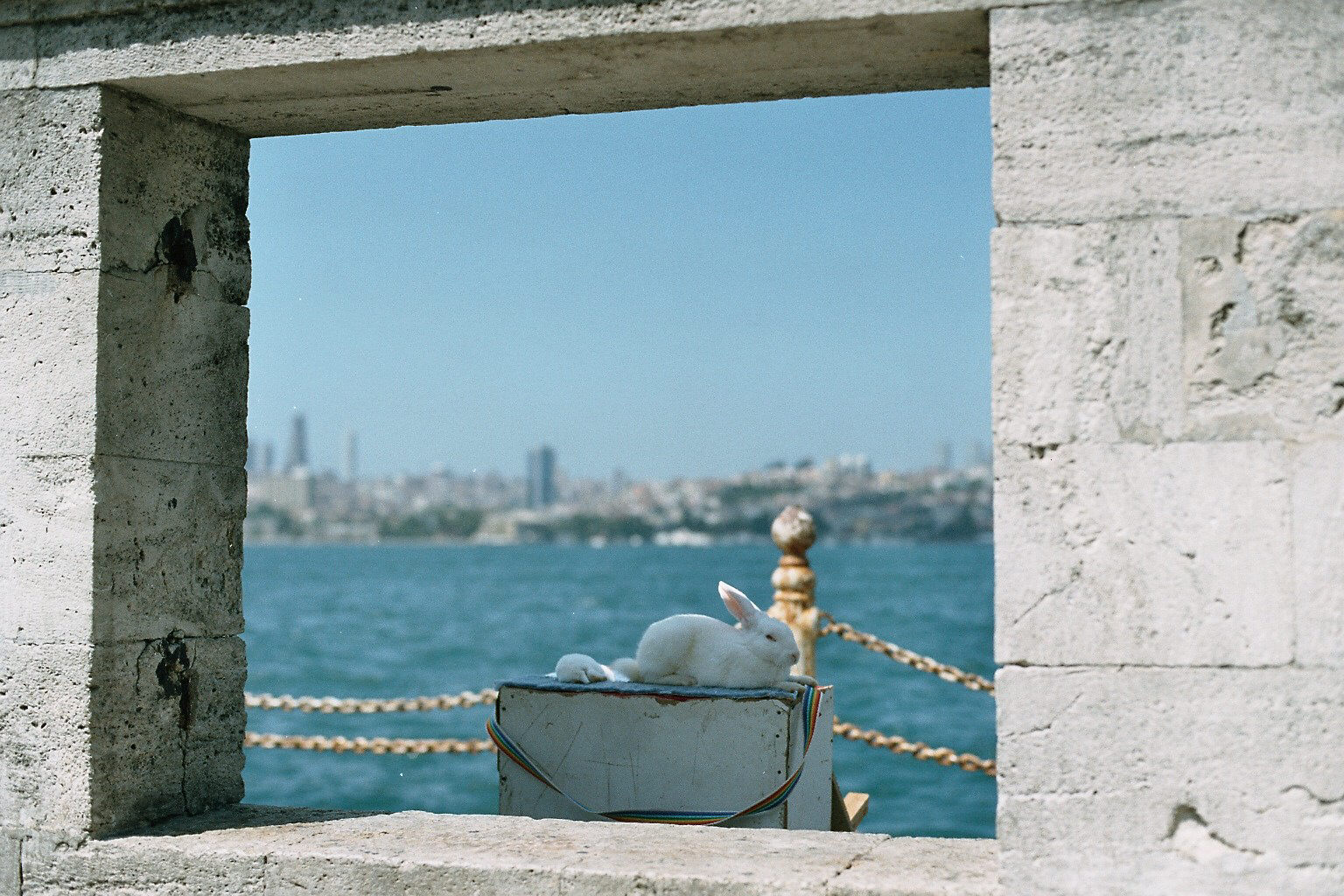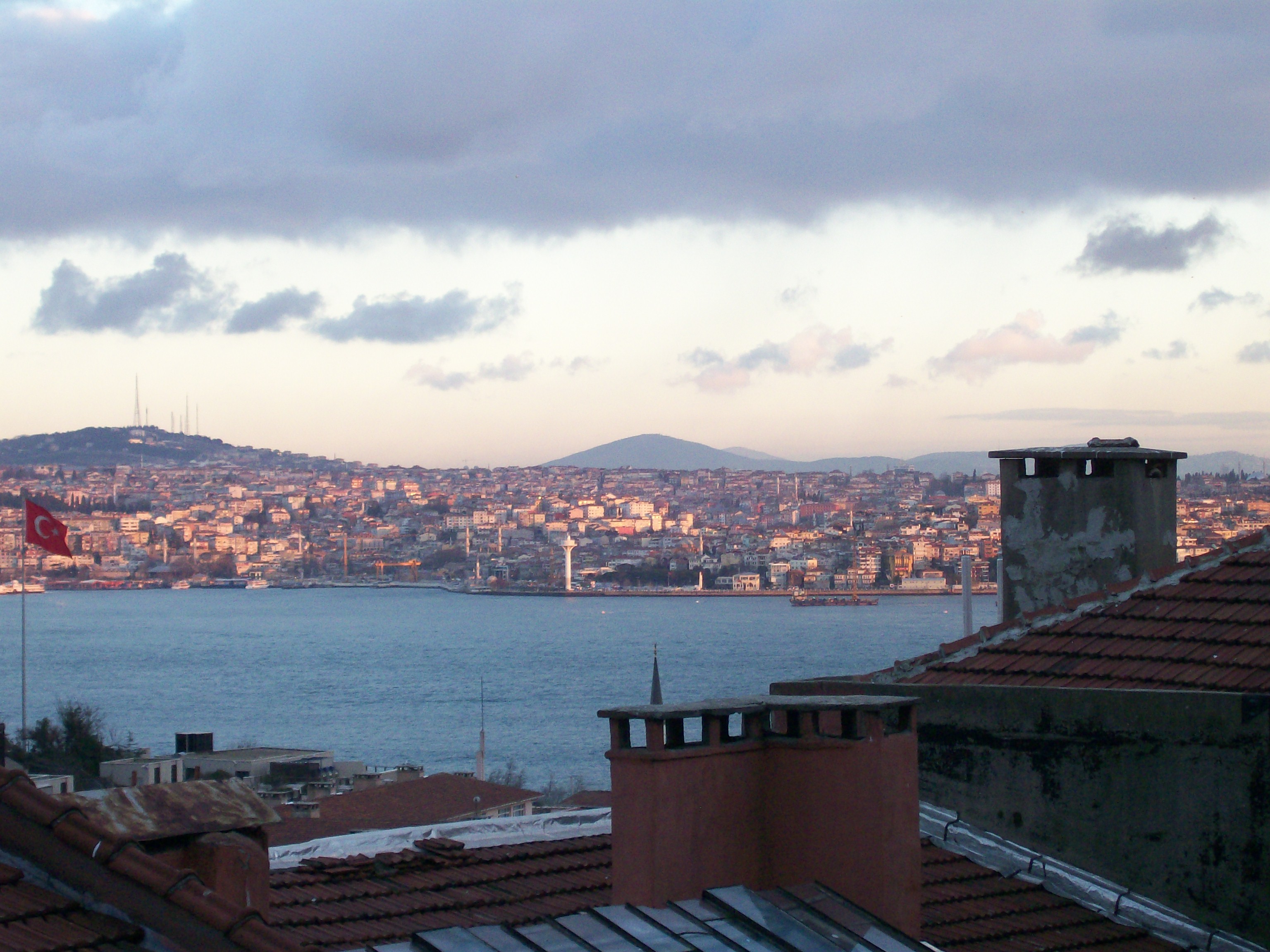Üsküdar (2008)
for sixteen players (piccolo, flute (=alto flute), English horn, clarinet, Turkish metal clarinet in G (=bass clarinet), madolin, qanûn, harp, 3 percussionists, 2 violins, viola, cello, bass) [18:30]
The past is the portion of the timeline that has already occurred; it is the opposite of the future. It is also contrasted with the present. —Wikipedia entry on ‘Past’
The direction of Time, the ardis of Time, one-way Time, here is something that looks useful to me one moment, but dwindles the next to the level of an illusion obscurely related to the mysteries of growth and gravitation. —Vladimir Nabokov, Ada, or Ardor
“Ü sküdar: a mechanism not for forgetting, but for conquering memory. A fantasy about scrambling chronology. A view across the Bosphorus to Time’s Arrow, fracturing memory–escaping the past / repeating the past / filtering the past.”
sküdar: a mechanism not for forgetting, but for conquering memory. A fantasy about scrambling chronology. A view across the Bosphorus to Time’s Arrow, fracturing memory–escaping the past / repeating the past / filtering the past.”
I wrote this note and the opening clarinet melody in my sketchbook during an August 2005 visit to Istanbul, sitting in a teahouse on the Asian shore. Less than a week later my hometown of New Orleans would be nearly demolished, and my sense of time, distance, and memory would change forever. Three years down the line, I found myself living in Istanbul full-time, with a view of Üsküdar (today, a modest neighborhood on the Anatolian side of the city) from my balcony.
The process of composing Üsküdar in Istanbul in 2008 turned in to a search for the piece I would have composed earlier, before the exoticism began to fade: a sort of Westerner’s fantasy of looking back onto Europe and getting a distanced outsider’s perspective on the past for the first time–a meditation on linear and cyclical conceptions of time, with a postlude that drags it into the present- day. In its title and choice of instrumentation, the piece is also an hommage to the distinctive exoticism of Claude Vivier.
to a search for the piece I would have composed earlier, before the exoticism began to fade: a sort of Westerner’s fantasy of looking back onto Europe and getting a distanced outsider’s perspective on the past for the first time–a meditation on linear and cyclical conceptions of time, with a postlude that drags it into the present- day. In its title and choice of instrumentation, the piece is also an hommage to the distinctive exoticism of Claude Vivier.
Üsküdar was commissioned by the Gaudeamus Foundation in conjunction with the 2007 Gaudeamus Prize, and was composed with support from the J. William Fulbright scholarship program. It was premiered on September 4, 2008 by the Nieuw Ensemble conducted by Micha Hamel at the Muziekgebouw ant’IJ in Amsterdam, the Netherlands.